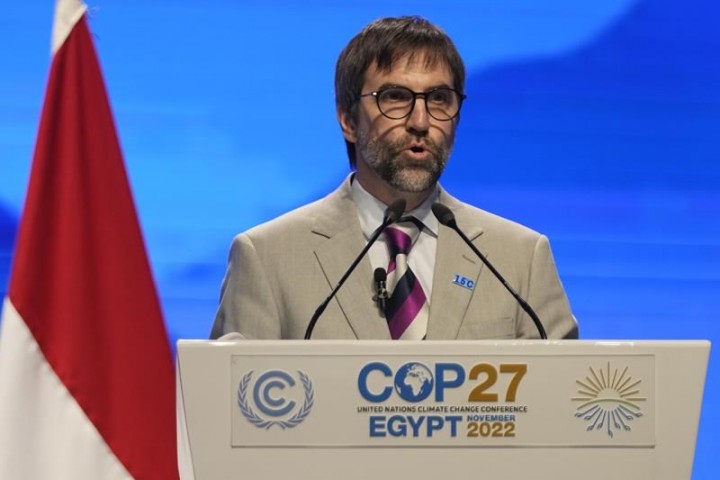ROME (AP) — Canadian and Italian dignitaries on Thursday marked the successful recovery of a photo portrait of Winston Churchill known as “The Roaring Lion,” stolen in Canada and recovered in Italy after a two-year search by police.
At a ceremony at the Canadian Embassy in Rome, Italian carabinieri police handed over the portrait to the Canadian ambassador to Italy, Elissa Goldberg, who praised the cooperation between Italian and Canadian investigators that led to the recovery.
The 1941 portrait of the British leader taken by Ottawa photographer Yousuf Karsh is now ready for the last step of its journey home to the Fairmont Château Laurier, the hotel in Ottawa where it was stolen and will once again be displayed as a notable historic portrait.
Canadian police said the portrait was stolen from the hotel sometime between Christmas 2021 and Jan. 6, 2022, and replaced with a forgery. The swap was only uncovered months later, in August, when a hotel worker noticed the frame was not hung properly and looked different than the others.
Nicola Cassinelli, a lawyer in Genoa, Italy, purchased the portrait in May 2022 at an online Sotheby’s auction for 5,292 British pounds. He says he got a phone call from the auction house that October advising him not to sell or otherwise transfer the portrait due to an investigation into the Ottawa theft.
Cassinelli, who attended Thursday’s ceremony, said he thought he was buying a regular print and quickly agreed to send the iconic Churchill photograph home when he learned its true story.
“I immediately decided to return it to the Chateau Laurier, because I think that if Karsh donated it to the hotel, it means he really wanted it to stay there, for the particular significance this hotel had for him, and for his wife too,” Cassinelli told The Associated Press.
The famous image was taken by Karsh during Churchill’s wartime visit to the Canadian Parliament in December 1941. It helped launch Karsh’s career, who photographed some of the 20th century’s most famed icons, including Nelson Mandela, Albert Einstein and Queen Elizabeth.
Karsh and his wife Estrellita gifted an original signed print to the Fairmont Chateau Laurier in 1998. The couple had lived and operated a studio inside the hotel for nearly two decades.
Geneviève Dumas, general manager of the Fairmont Château Laurier, said on Thursday she felt immensely grateful.
“I would like to extend my deepest gratitude to everybody involved in solving this case, and ensuring the safe return of this priceless piece of history.”
Police arrested a 43-year-old man from Powassan, Ontario, in April and have charged him with stealing and trafficking the portrait. The man, whose name is protected by a publication ban, faces charges that include forgery, theft over $5,000 and trafficking in property obtained by crime exceeding $5,000.
